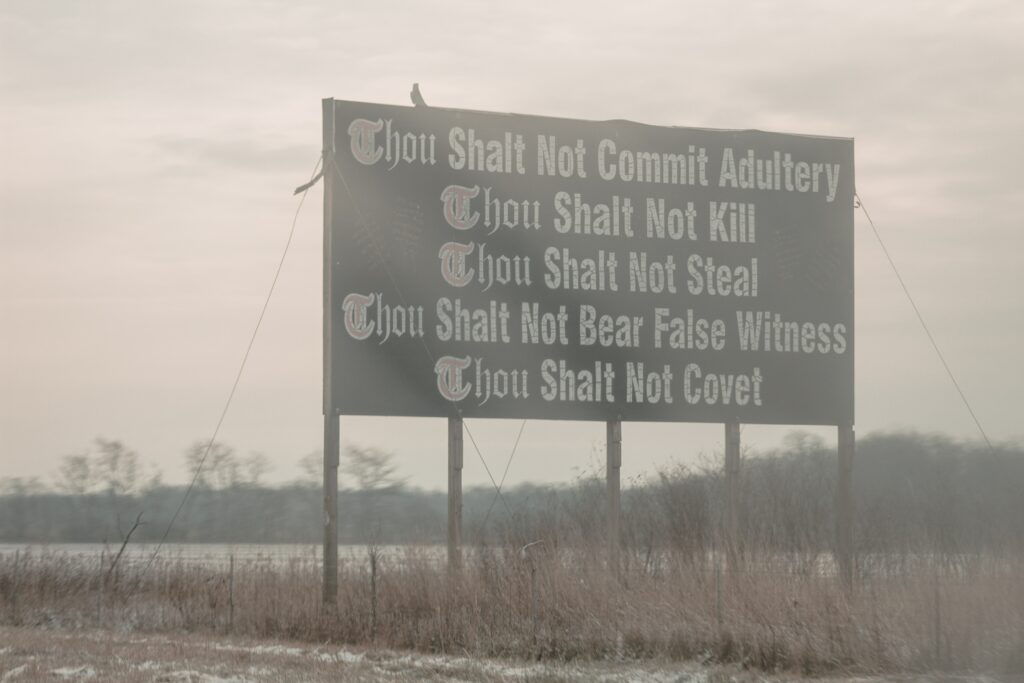
We have some odd ideas about God.
I hear students say, “We won our soccer game. Isn’t God good!”
Well, yes he is. But he was good to the team that lost, too.
“I passed my test. Praise God!”
But he would be worthy of praise just as certainly if you hadn’t passed.
The Bible’s story is very different from this sort of self-referential, circumstance-based thinking. God is good all the time. And he’s great all the time. He’s bigger than anything.
- The shepherd boy goes up against a giant, and he kills him with a sling (1Sa 17.48-51). God’s greater than giants.
- The Assyrian army surrounds and besieges Jerusalem, and the Angel of the Lord kills 185,000 Assyrian soldiers as they sleep in their tents (Is 37.36). God’s bigger than emperors and their armies.
- Nahum says that God’s way is in the whirlwind and storm (Na 1.3). Have you ever seen a tornado? I’ve seen a town shortly after it was obliterated by one. Who sent that storm? God did. He’s bigger than the greatest natural forces we can ever imagine.
Let me go a step further.
He’s even bigger than sin! He doesn’t sin, and He doesn’t like us to sin, but it doesn’t frustrate Him or mess up His plans. He even uses it to accomplish His purposes.
Watch how it happens. I’d like to lay out the biblical story—what some call its “metanarrative”—in a couple of posts. It’s not a story in which we’re the heroes, or even the main characters. But it changes our lives and our fortunes.
The Promise (Ge 3)
The story I got in Sunday school was simple:
God makes a beautiful world, Adam ruins it, and God has to figure out a way to rescue him and still be just.
Simple enough for a child. But not accurate. That’s not really how the story goes—or perhaps more correctly, that’s not the point of the story.
This is more like it:
- God hasn’t made this difficult, but Adam and Eve sin anyway. And God knows, and He confronts them. He pronounces judgment on each of them, and then He turns to the serpent, and in the midst of judgment, He speaks grace to Adam and Eve (Ge 3.15).
- There will be a “seed.” And that “seed” will crush the serpent’s head. Out of unexpected failure, and shock, and fear, comes Hope.
- Adam and Eve clearly don’t understand. She has a son and names him Cain, “getting,” because she’s gotten what God promised, a seed (Ge 4.1). Boy, is she ever wrong.
- But God is doing what He wants. This is not Plan B; there is no Plan B. This is what He intended all along.
The People (Ge 12)
- God finds a pagan man, an idol worshiper (Jos 24.2), and makes a completely unreasonable demand: Leave your home and your family, and go somewhere else. Where? I’m not telling you. Just go (Ge 12.1).
- And Abram believes, and he goes. But he’s not exactly perfect; he’s afraid of a king, so he lies and tells him that his wife is his sister (Ge 12.13). And only direct intervention from God preserves the purity of the woman Abram’s supposed to protect. That’s a pretty serious failure.
- Then Abram tries to help God keep his promise by having a child with his wife’s servant (Ge 16.3). That’s disappointing.
- But by the time it’s over, Abram (now Abraham) and Sarah have a son, and everybody’s laughing (Gen 21.6). And that son has a son named Israel, who’s a cheater (Ge 25.26); and that son has 12 sons, 10 of whom sell their spoiled little brother into slavery (Ge 37.28); but they become the 12 tribes of Israel, and God has taken the first big step toward keeping His promise to crush the serpent’s head.
Next time, the story continues.
Photo by Philip Graves on Unsplash



